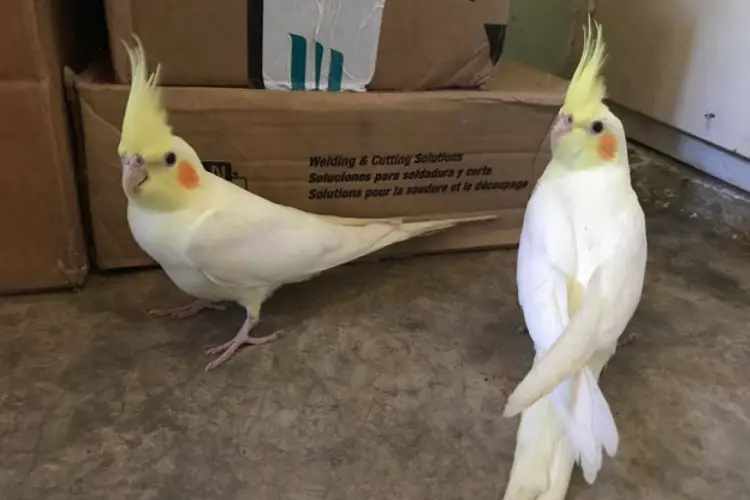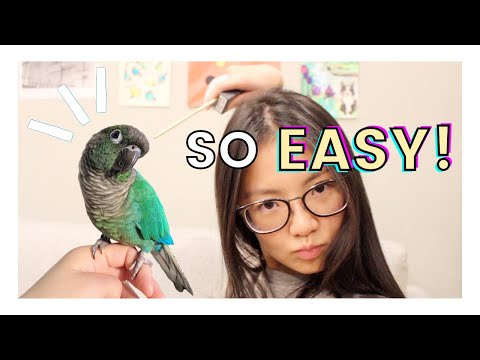Cockatiels are naturally calm and friendly birds. If you notice your cockatiel showing signs of being scared, you must take the necessary steps to calm and tame it. It will require your patience since your cockatiel will have to trust you for you to be able to calm it down when it gets scared.
How to calm and tame a scared cockatiel in 1 day? You have to create the right environment by eliminating anything that could scare your cockatiel. This will need you to understand the background of your cockatiel fully. Finally, to develop trust, you need to pay close attention to its body language, give it treats at the right time and initiate positive interactions.
Generally, your cockatiel takes from a few hours to days to get adjusted to the noises, smells, and sights of its new surroundings. After it has become accustomed to its new surroundings, you can talk to it, so it learns and gets used to your voice through habituation. If you’re doing well, it’s possible to calm your scared cockatiel in one day. Check out the article for more taming tips to calm your cockatiel as soon as possible.
How to Calm and Tame a Scared Cockatiel in 1 Day?
When your cockatiel gets scared, the quickest way you will calm and tame it is to build trust. Trust is essential since, without it, your cockatiel will not give you a chance to either calm or tame it. So here are the necessary steps to take in calming and taming your scared cockatiel in just a day!
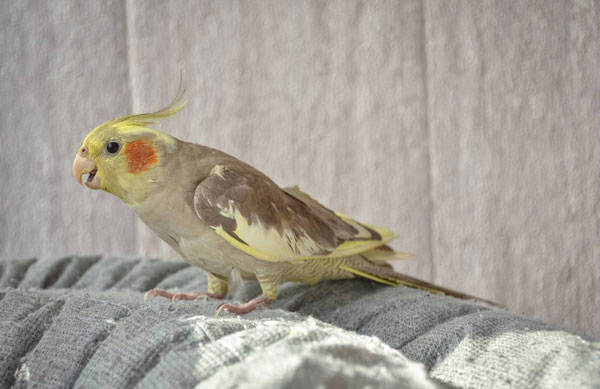
1. Create the right environment
To effectively tame your scared cockatiel, you should eliminate anything that could frighten it. Choose a quiet, neutral setting for your first interactions, and anticipate which behaviors or things may thwart your efforts to tame them.
You should also ensure that your cockatiel has a safe hiding place during the early phases of the change. You want it to feel secure; your involvement with it should be non-threatening and calm from the start. You want to get into your cockatiel’s safe zone as soon as possible.
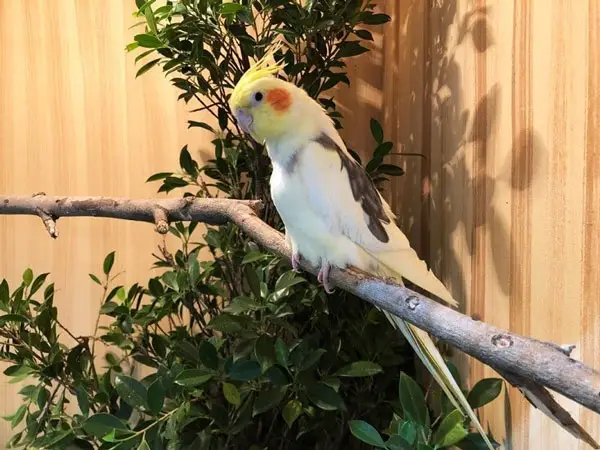
So unless your scared cockatiel requires immediate medical attention or you need to transport it to a different cage for any reason, avoid doing anything that would frighten it further or give it a wrong first impression. For example, you do not have to wing trim it immediately.
2. Understand your cockatiel’s background
Before getting your cockatiel from your local pet store, it had already experienced the world. Perhaps it’s only interaction with humans was being taken from one cage to another. Or it had a terrible owner who would neglect it or barely feed it.
It could be that it is wary of strangers because of inadequate contact with them. Its previous owners may also have injured it. Learn everything you can about your cockatiel. This will help you avoid triggering it and get your taming sessions off to a good start.
Paying close attention to background information may also help you identify the root of any problems that develop while interacting with your cockatiel and adjust your behavior accordingly.
3. Pay attention to body language
To help calm it down, you can follow a parrot training guide to learn your cockatiel’s specific body language and preferences. Some birds may be unconcerned by everyday stimuli, while others may be more concerned. Your knowledge of your cockatiel’s body language will help a lot in calming and taming it.
Cockatiels have crests which they might cuddle up and sway back and forth. When they get scared, they will scream and stretch their necks.
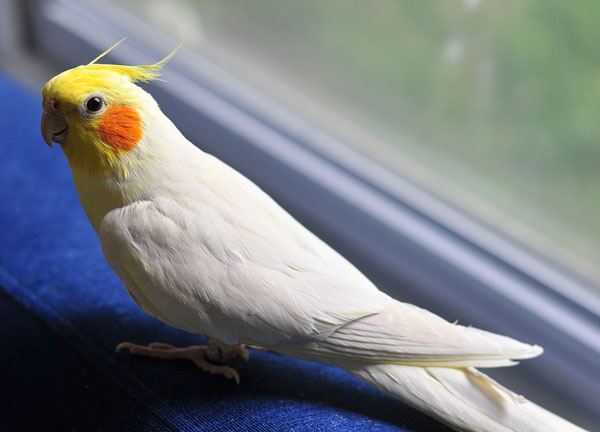
These are not trustworthy signs, and if you try to approach it or hold it then, your cockatiel might bite you. Instead, calm your cockatiel with soothing words while looking at it with only one eye (predators’ eyes normally point forward), and slowly back away.
Make sure you give your cockatiel time and room to adjust. Birds will choose flight as part of their “fight-or-flight” reaction. If you notice your cockatiel wants to flee something, it is because it finds it frightening.
4. Give the cockatiel a treat
Most birds are highly motivated by food, and treats are a great way to attract them and make new friends. The best treats for your cockatiel are:
- Spray millet
- Almonds
- Sunflower seeds
- Fruits
Instead of picking a treat for your cockatiel, give it some favorite options to choose from. It will choose the treat it recognizes and wants, and this will vary depending on the cockatiel.
However, if your cockatiel is afraid of being near you, place a reward on a surface that requires it to take a few steps in your direction before it can consume it. If you believe it is susceptible to persuasion, utilize the prizes to get it to eat from your hand. Treats will become increasingly crucial as you target training your bird, which is an excellent method to create trust.
5. Initiate positive interaction
Cockatiels love playing and learning new tricks. This activity will not only enhance your bond with your cockatiel, but it will also offer him the mental stimulation it needs. There are numerous types of bird toys available for purchase.
You can begin target training once your bird has become accustomed to your presence. Target and clicker training provides positive reinforcement and is excellent for initial taming. It motivates your cockatiel to overcome its fears to win prizes.
How to Deal with Miscommunication When Calming Your Cockatiel
What should you do if your bird bites you while training it? If this happens, remember not to respond emotionally and keep calm. Never strike or shower your bird with water since it will develop mistrust and a negative link with you.
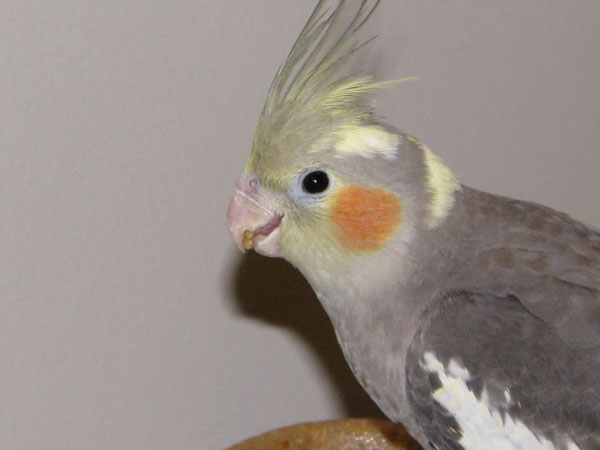
Because biting a flat surface is more complex than biting a single finger, keep your fingers together and curl them inward. Withdraw your hand till it is no longer reachable. While a downward tilt of the bitten hand can help, you should also say “No.”
How Long Does It Take for My Cockatiel to Trust Me?
It could take many weeks or longer to build trust. You can speed up the trust process by providing ongoing education, repetition, and developing a good rapport. Note that first impressions impact how quickly your cockatiel will trust you. The first day’s success of calming it down and getting it out of stress could be a major milestone you can achieve in this bonding.
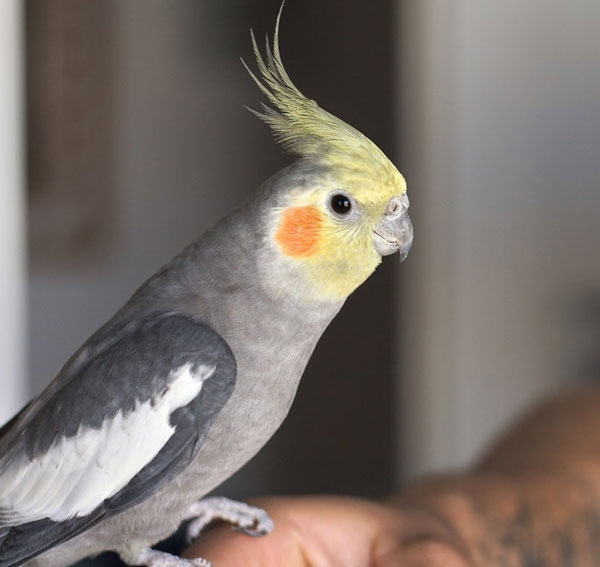
FAQs
Here are several more questions you may be asking yourself when taming your cockatiel. We answered the most common ones.
You will know if your cockatiel is scared in the following ways:
- Returns to its perch
- Squat to prepare to fly or run
- Step one foot to the side
- Connect its feathers to its body
The way a cockatiel interacts with you will reflect its level of trust in you. They will droop their heads forward, be generally calm, desire to be near you, and may even show shows of joy when they are close to you. Sleeping on you or being eager to wander onto your finger or into your palms are also red signs.
Final Thoughts
Although cockatiels are sociable and friendly, acclimating your bird to you and its surroundings will most likely take some time. They are shy and may grow fearful if handled or touched too rapidly. You should be able to build a bond with your cockatiel in no time with a bit of patience. After all, building trust is the the quickest way on how to calm and tame a scared cockatiel in 1 day.
Your relationship will strengthen once your bird considers you a buddy, but it will always demand effort and persistence. Your cockatiel will eventually be willing to land on your palm to get closer to you or obtain what he desires.
